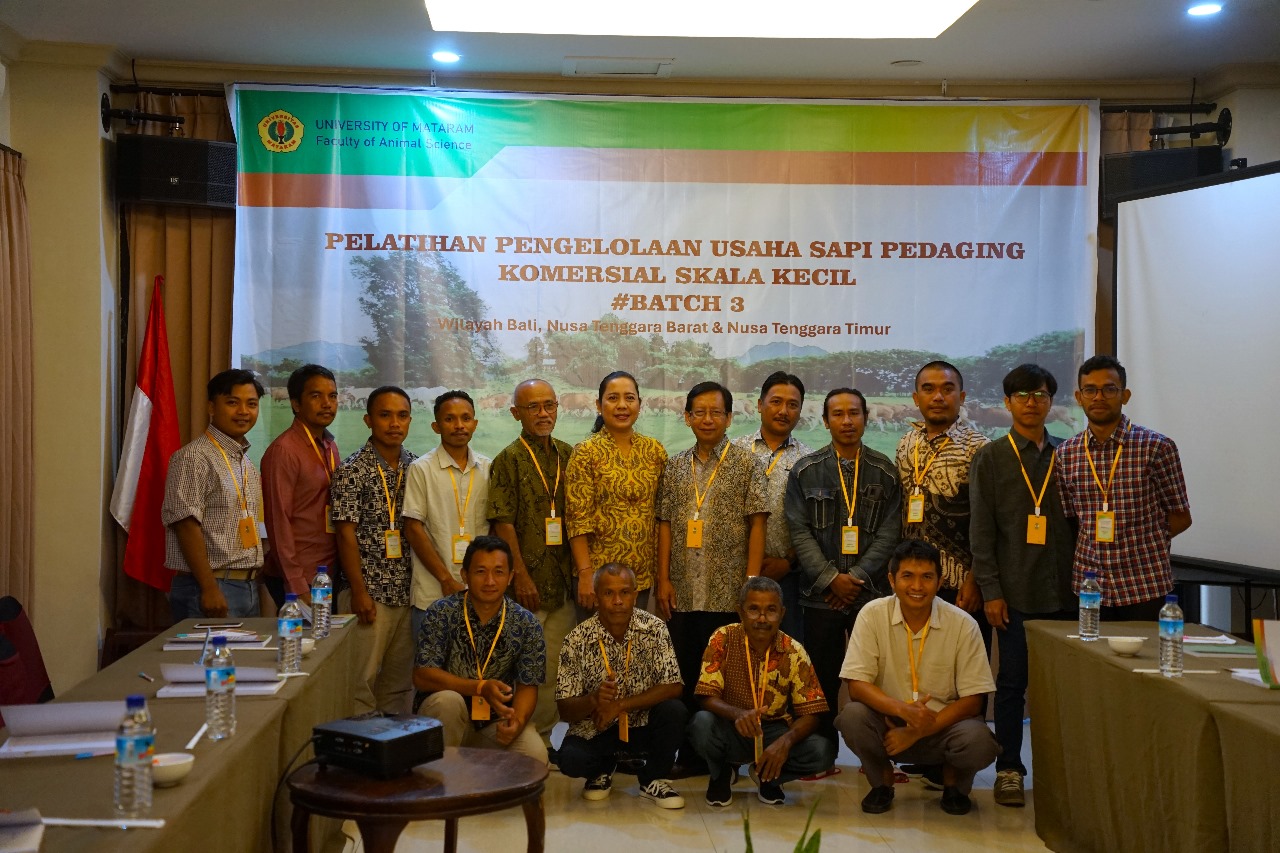Small Scale Commercial Cattle Farming Business Management Training program Batch 3: Increase Profit and Sustainable Farming

Mataram, University of Mataram – The Faculty of Animal Science, University of Mataram (Faterna Unram) is once again conducting the Batch 3 Small-Scale Commercial Cattle Business Management Training for Bali, West Nusa Tenggara (NTB), and East Nusa Tenggara (NTT) for four days from 16-19 April 2024 in Lombok.
This training was first conducted in cooperation with the Indonesia Australia Red Meat and Cattle Partnership (IARMCP) through the Indonesia-Australia Partnership on Food Security in the Red Meat and Cattle Sector. This agreement was developed by the governments of Indonesia and Australia to improve the supply chain of the red meat and cattle sector in Indonesia and develop a competitive, efficient and sustainable red meat and cattle industry between Indonesia and Australia.
Prof. Dahlanuddin, M.Rur.Sc., Ph.D. as the Chief Executive explained that this training was first held in 2021 and was held in collaboration with RMCP, Gadjah Mada University (UGM), and Unram. Unram then offered to conduct the small-scale commercial beef cattle business management training independently for the Bali, NTB and NTT regions.
“This third batch is unique because participants started to pay, while the previous two batches were free because they were fully funded by IARMCP. Why should it be paid because our sponsorship ends in April 2024, so IARMCP hopes that Unram can independently conduct this training in the future, “concluded Prof. Dahlanuddin.
Furthermore, Prof. Dahlanuddin explained that the target of this training is actually massive, the target includes the development of livestock businesses that are not only profitable but also sustainable, as well as stimulating participants, especially young educated farmers, to optimally operate profitable cattle farming businesses in a more modern and sustainable manner.
The training was attended by 15 cattle farm business owners from Bali, NTB and NTT who were selected through an administrative selection process and interview by the training team. Through this training, the farmers learn about the business records; production and calculation of feed requirements; ration formulation, processing and feed business; practice of making complete feed and supplementary feed; management of cattle breeding and fattening; marketing strategies and increasing added value of meat; beef safety management at the slaughterhouse; commercial meat slaughtering and standardized meat packaging; animal welfare and biosecurity; field visits; and presentation of the trainees’ business plans.
